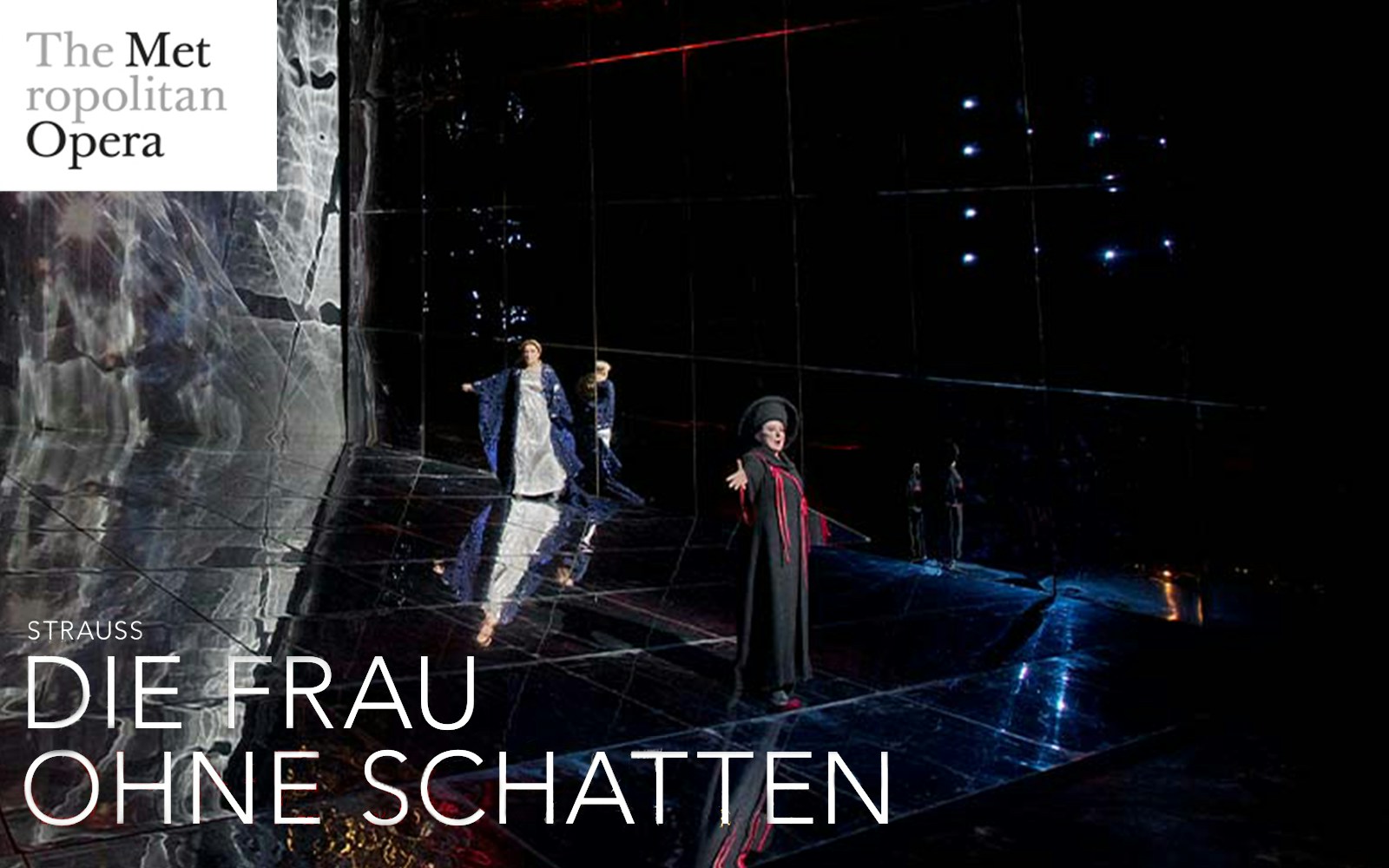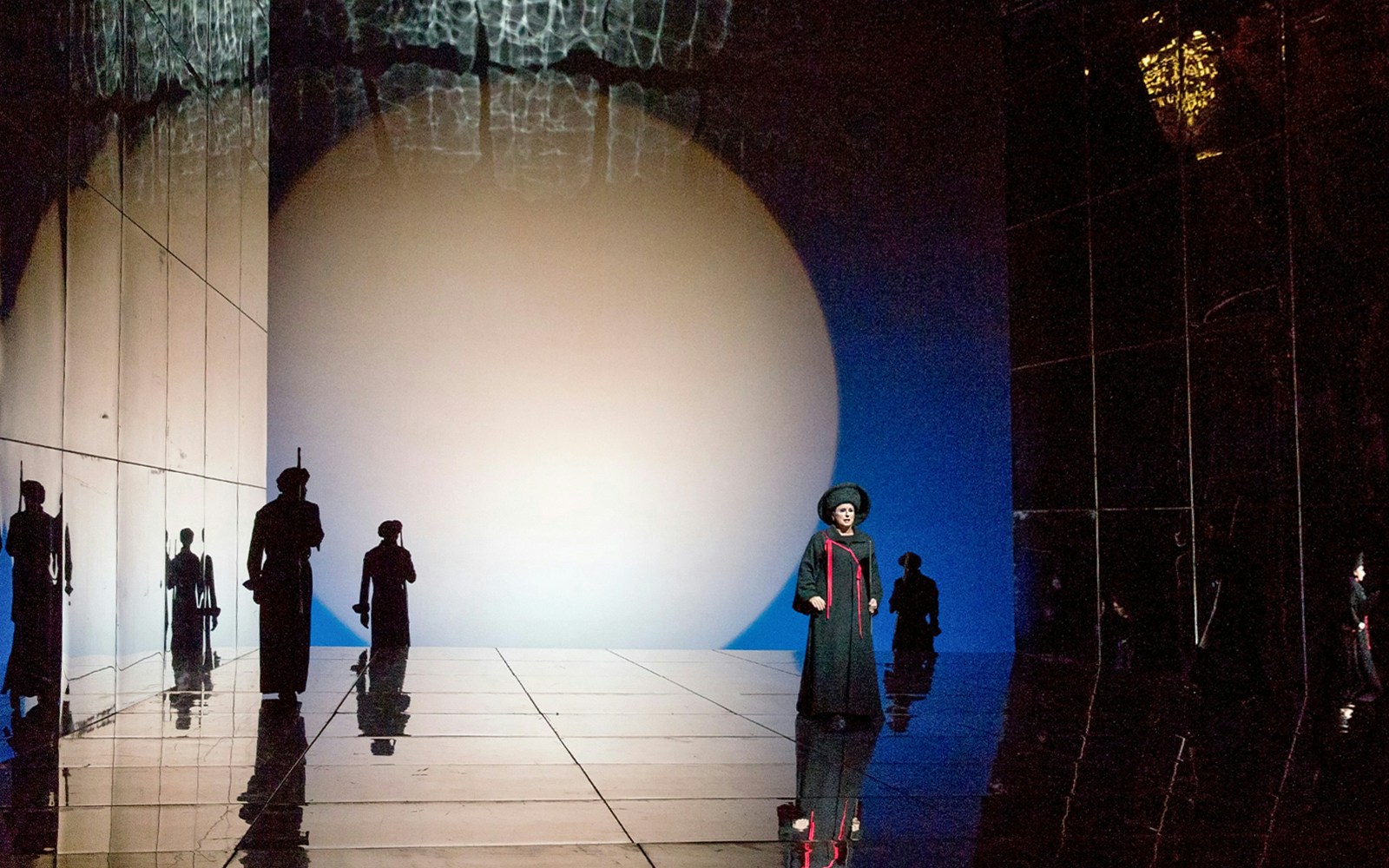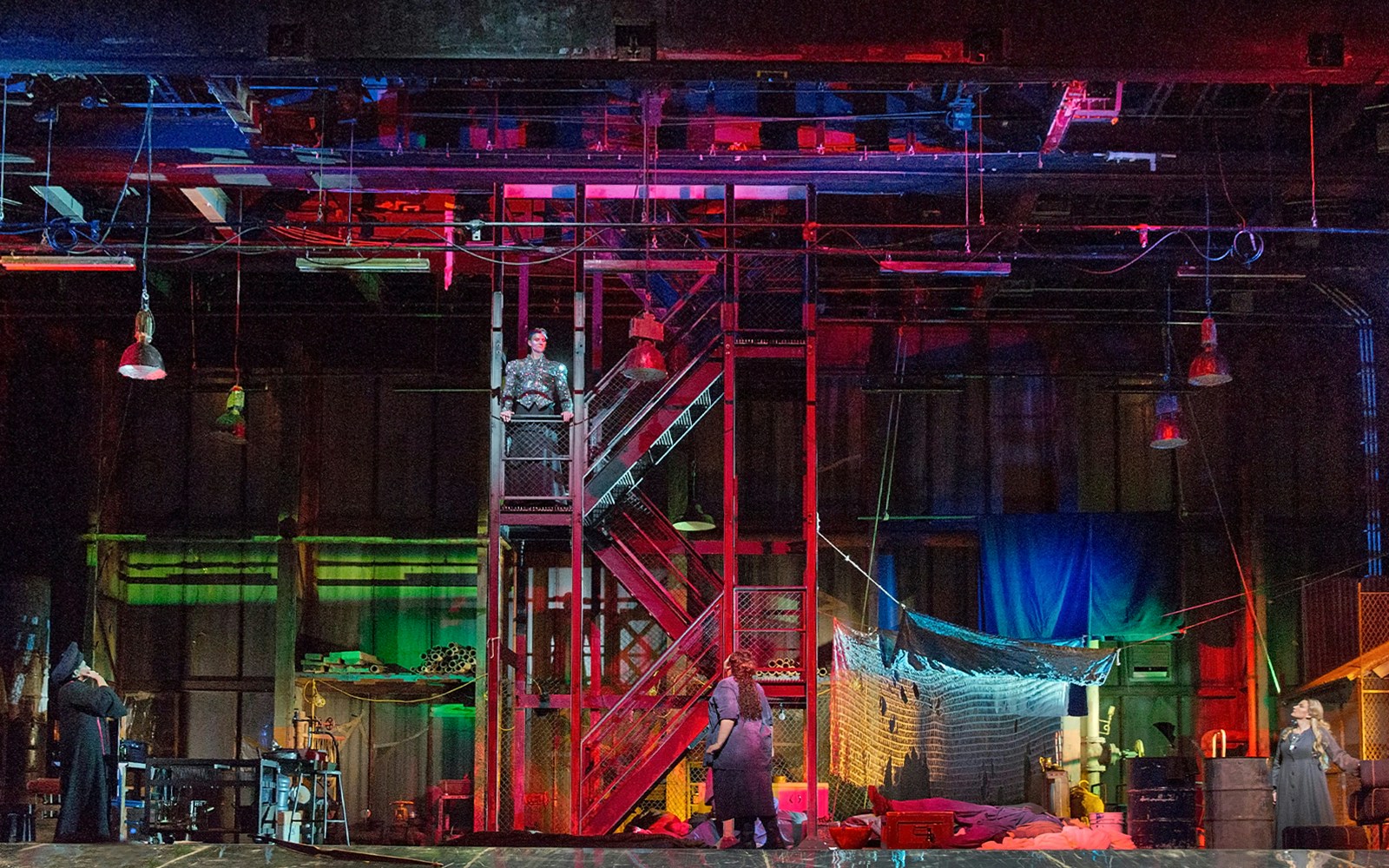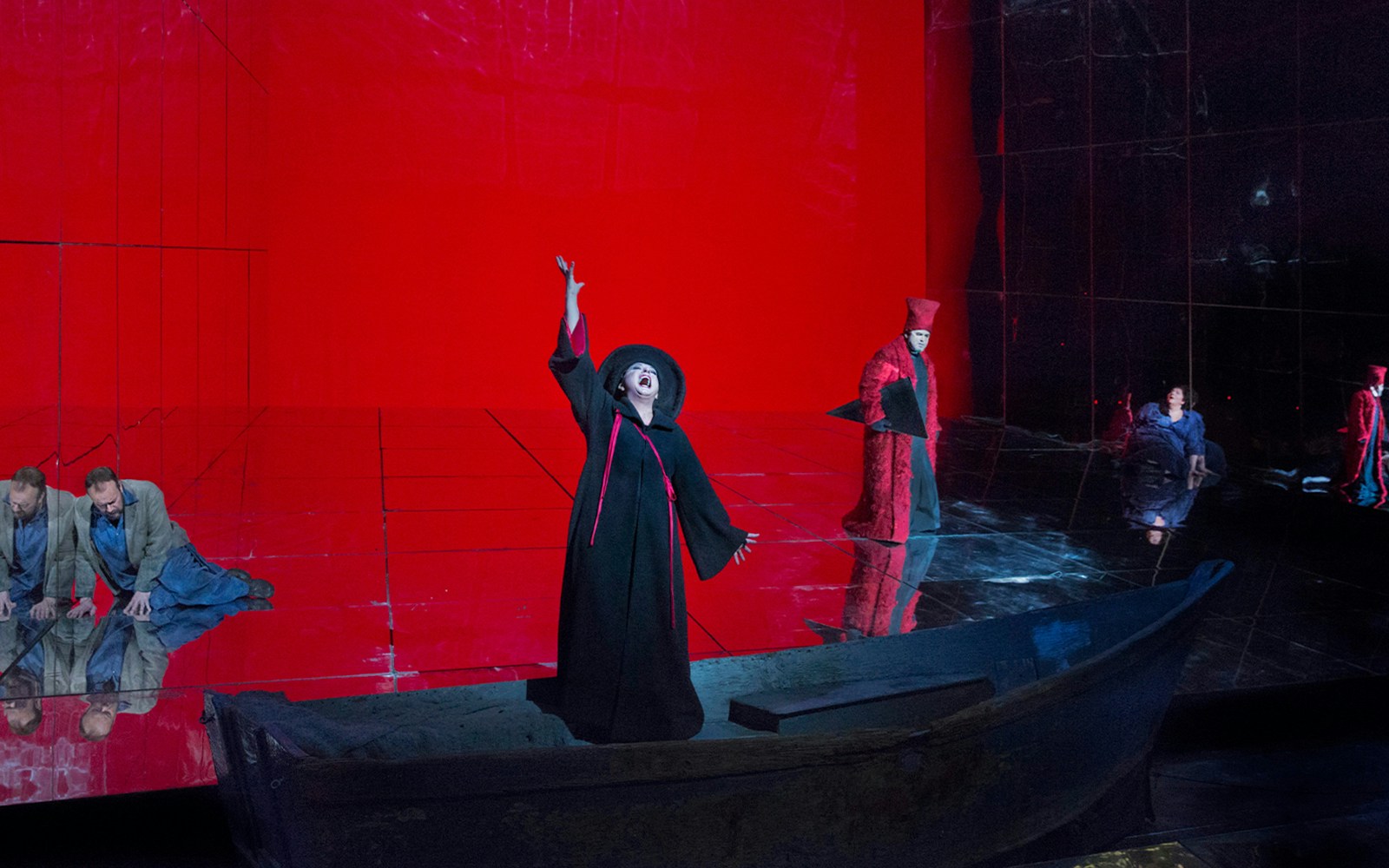











Composed during World War I, Richard Strauss's magnum opus is a profound meditation on our rare capacity for love and transformation. At its heart, Die Frau ohne Schatten explores the transcendental space between spirit and flesh, toying with the concept of the 'ideal'. Wernicke's production brilliantly contrasts the ethereal spirit kingdom, realized through mirrors and celestial projections, with the gritty industrial setting of Barak's basement dwelling.
The musical effort is massive, demanding two simultaneous orchestras (one on stage and one in the pit) that feature differing augmentations to create otherworldly soundscapes. Conductor Yannick Nézet-Séguin brings out the score's humanitarian message, making even the most complex passages accessible while maintaining dramatic tension. On this ethereal journey, no participant comes out unaltered.
Beyond the realm of flesh & bones, the Empress - daughter of the spirit-king Keikobad - faces a terrible choice. Born without a shadow (the ability to bear children), she must acquire one within three days or risk turning her mortal husband, the Emperor, to stone. Desperate, she and her sinister Nurse descend to the temporal world, where they encounter Barak, a humble dyer, and his discontented wife. As they scheme to purchase the Wife's shadow, their worlds begin to blur together, leading to a profound exploration of marriage, sacrifice, and what it truly means to be human. The fate of two couples hangs in the balance as they face trials that will either destroy or redeem them.
Note: Producers can not guarantee the appearance of any particular artist, which is always subject to illness and holidays.
The cast features some of today's finest dramatic voices breathing life into Strauss's rich scores, including moving compositions like Wie soll ich denn nicht weinen? and Sie Aus Dem Hause.
The Metropolitan Opera is one of the most iconic landmarks in the New York skyline. Although the current space was inaugurated in 1966, the opera house has played host to some of the industry’s best compositions since 1883. Owing to the excellent acoustics and vast space, it is lauded for its architectural brilliance and has delighted audiences with several iconic shows like Aida.
The Metropolitan Opera Seating Chart will help you find the best seats in the theater.
Address: 30 Lincoln Center Plaza New York, NY 10023
Subway: The nearest subway stations are 59 St-Columbus Circle, 57 St-7 Av, and 72 St on the 2, A, and D lines.
Bus: Lines servicing the area include M104, M5, M57, M66, and M7.
Available Facilities: Restrooms, restaurant, bar, cloakroom, water fountain
Accessibility: Wheelchair access, accessible seating, assistive listening system, service dogs allowed, visual impairment assistance
Security:To ensure your comfort and security, you might encounter a few security checks when you arrive at the venue.
Dress Code: Smart-casual or semi-formal attire is the way to go.
Outside Food: While outside food isn't allowed inside, the hotel complex hosts many cafes or restaurants inside for you to check out before or after the show.
The cost of the tickets typically starts from $35. Prices may vary depending on the day of the event and the type of seats you choose.
Die Frau ohne Schatten was originally composed in German by Richard Strauss.
Although children are allowed inside the opera house, the content of the show contains strong emotions and themes and may be overwhelming for children. Please use your discretion about the show’s duration and content before making a purchase.
Performances of the production will begin at The Metropolitan Opera in New York on 29 November 2024.
Die Frau ohne Schatten is a mythological epic that follows an Empress from the spirit world as she struggles to save her husband and restore her ability to bear children.
The opera covers three acts in approximately 4 hours and 10 minutes, including two intervals.